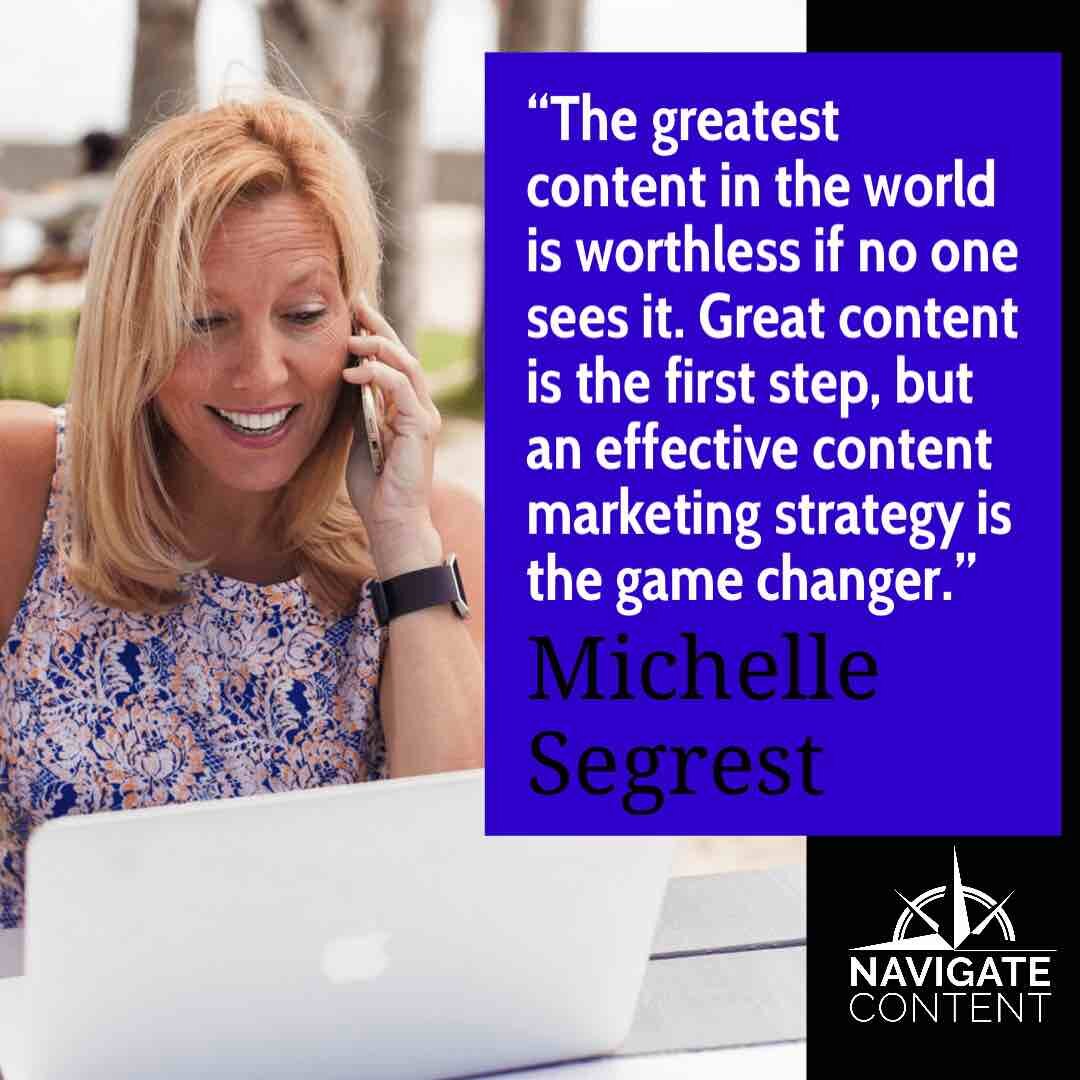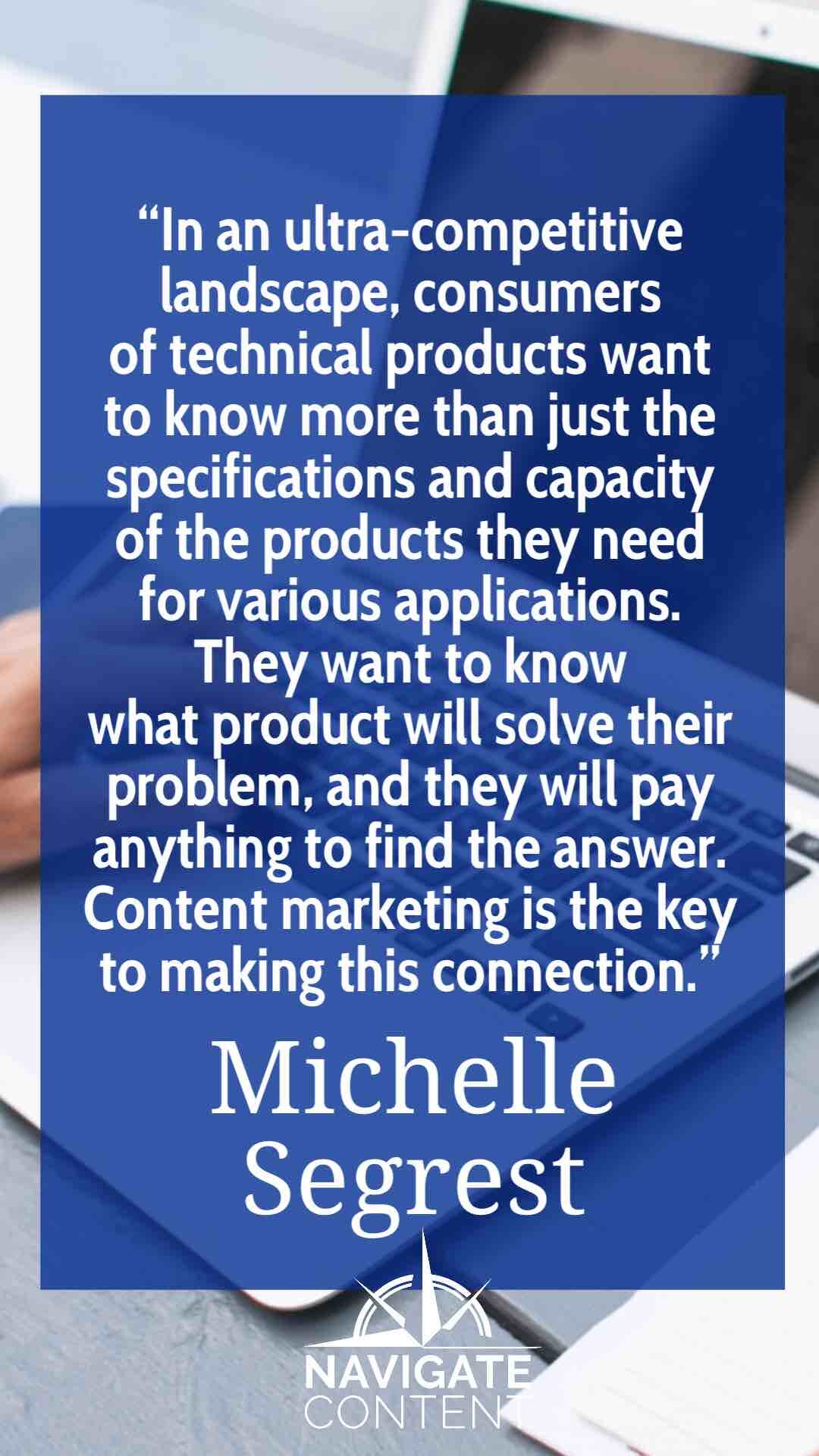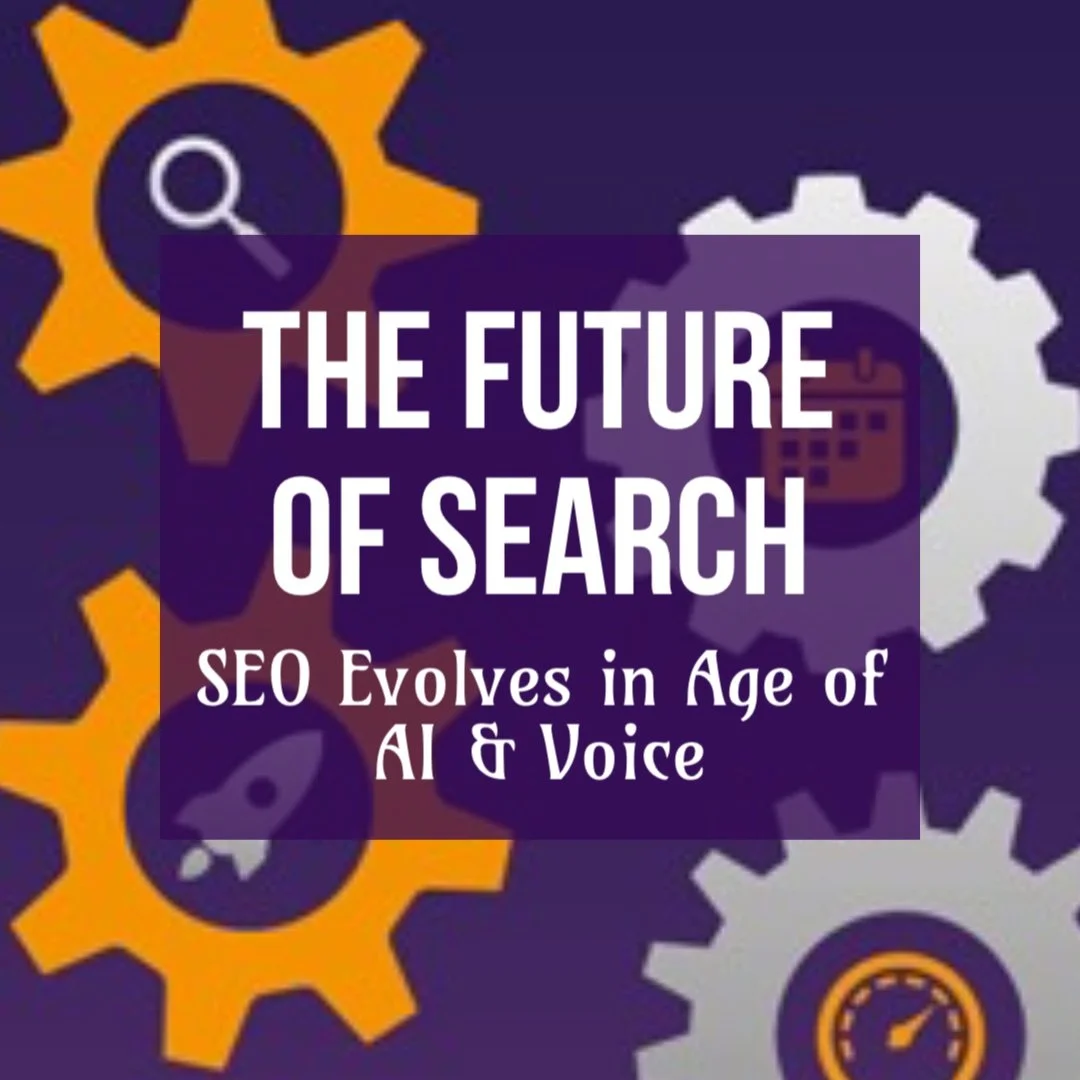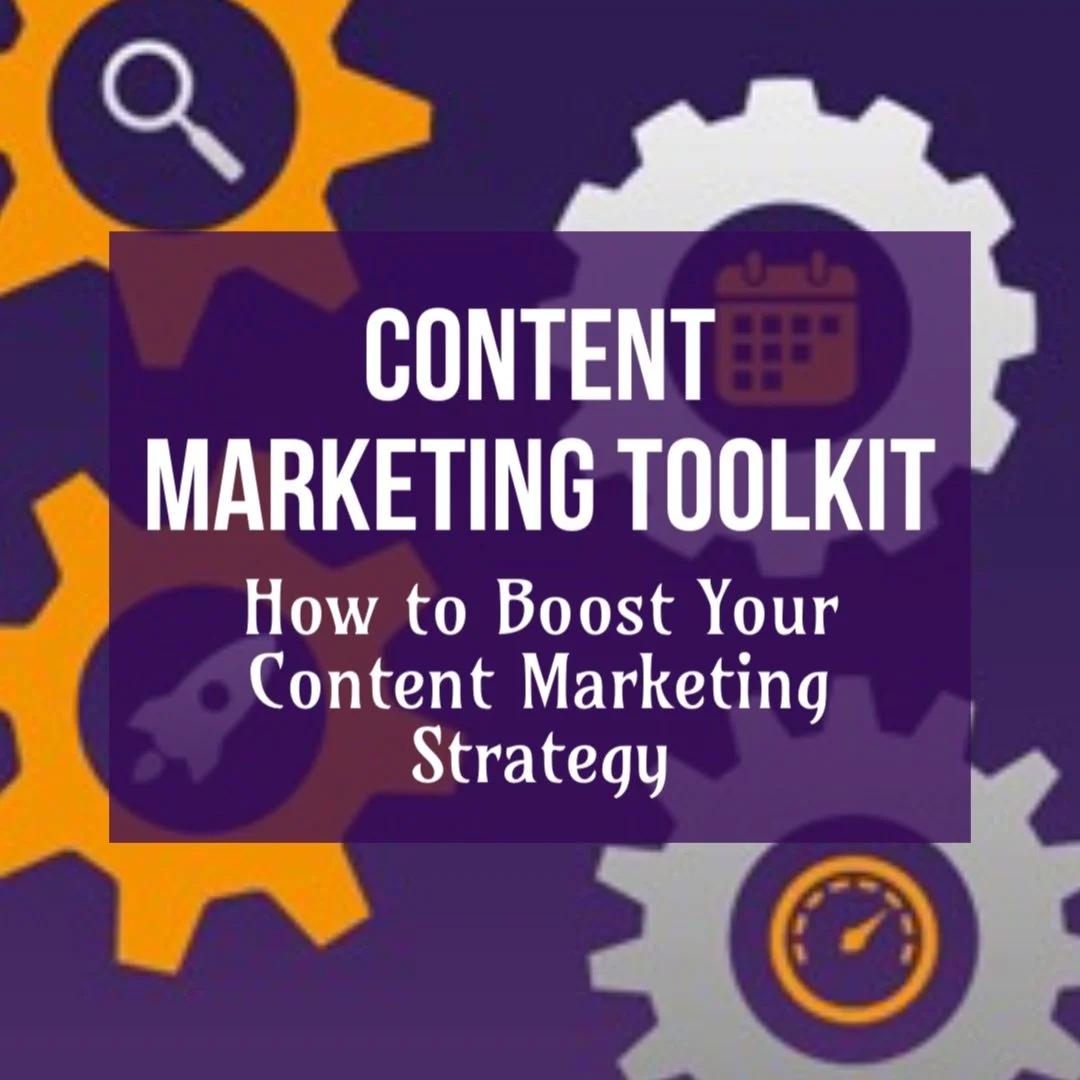The Future of Search: How SEO is Evolving in the Age of AI & Voice
/Discover how AI, voice, and conversational search are transforming SEO—and learn how to adapt your content strategy to stay visible in 2025 and beyond.
By Michelle Segrest, Navigate Content Marketing
Search doesn’t stand still. It never has.
From the first days of keyword stuffing to the era of mobile-first indexing, SEO has always evolved alongside user behavior. But in 2025, we’re witnessing a far greater transformation—one driven by artificial intelligence, voice interfaces, and conversational intent. Search engines are no longer just databases that return results; they’re becoming intelligent companions that interpret context, predict needs, and even generate answers.
For marketers and content creators, that means the playbook is being rewritten. Ranking high on a search results page is no longer just about clever keywords—it’s about understanding how humans communicate with machines, and how machines learn to think like humans.
What You’ll Learn
How voice and AI-assisted search differ from traditional typed queries.
Where SEO is heading—and which outdated tactics brands should stop using.
How conversational, helpful, and question-driven content improves visibility.
What’s Changing in SEO Search
1. The Rise of AI-Powered Search
Google’s Search Generative Experience (SGE), Microsoft’s Copilot, and a growing ecosystem of AI-driven platforms are transforming how users find information. Instead of offering ten blue links, AI search models synthesize answers using generative algorithms that pull from multiple credible sources.
This shift creates both risk and opportunity. On one hand, fewer clicks are needed because users often find answers directly in the AI-generated summary. On the other, brands that structure their content properly can become part of those high-visibility answers—earning trust and authority even in zero-click environments.
“Search is no longer about matching queries to content,” explains one industry analyst. “It’s about delivering the most contextually relevant and helpful response—instantly.”
2. The Growth of Voice and Conversational Search
Voice search continues to expand as smart assistants—Siri, Alexa, and Google Assistant—integrate deeper into our daily lives. In 2025, more than 50% of all searches are expected to be conversational. Instead of typing “best SEO tools 2025,” users now ask, “What are the most effective SEO tools for content marketers this year?”
This changes the foundation of keyword research. Success now depends on natural-language optimization—writing content that mirrors how people speak, not just what they type.
3. The Evolution of SERPs
Search Engine Results Pages (SERPs) now include featured snippets, knowledge panels, image carousels, FAQs, and videos—and often push organic links further down the page. Google’s AI Overview, for instance, draws on structured data to generate summaries.
Brands must learn to optimize for visibility beyond traditional rankings, focusing on snippet capture, schema markup, and structured content that can be “read” and repurposed by AI systems.
What New Search Strategies Mean for SEO
Keywords Are Evolving into Conversations
The keyword era isn’t over—it’s just growing up. Instead of chasing high-volume, single-term phrases, today’s SEO leaders are building content ecosystems that target intent-based, long-tail queries.
These might include questions, how-to statements, or problem-solution phrasing. A well-designed SEO strategy in 2025 maps user journeys—what people want, how they ask, and what they do next.
Structure and Schema Matter More Than Ever for Search Strategies
Search engines now rely heavily on structured data to understand content contextually. Implementing schema markup (FAQ, HowTo, Article, Product) tells AI exactly what your content means—not just what it says. This structure helps your information appear in rich results, snippets, and generative summaries.
Authority and Experience Trump Everything for Effective Search
AI search tools prioritize trust signals—verified expertise, original data, author bios, and high-quality backlinks. This aligns with Google’s E-E-A-T principles (Experience, Expertise, Authoritativeness, and Trustworthiness).
The new SEO gold standard: become the source that AI wants to quote.
User Experience Is Now a Ranking Search Factor
Fast load times, mobile optimization, and low bounce rates remain essential. But user experience has expanded to include content clarity, accessibility, and engagement. When readers stay longer, interact with visuals, or click internal links, AI interprets that as a sign of helpfulness.
A Step-by-Step Strategy for Modern SEO
1. Audit Your Current Search Presence
Start with your analytics and Google Search Console. Identify the content already ranking for conversational or question-based searches. Which pieces are being surfaced in snippets or summaries—and which aren’t?
2. Refresh Your Keyword Strategy
Use AI-based tools to uncover natural language queries. Focus on question phrases (“how,” “why,” “what’s the best way”) and intent clusters.
For example, instead of targeting “content marketing SEO”, optimize for “how to align content marketing with AI-driven search trends.”
3. Optimize Content for Humans and Machines
Structure your articles using H2/H3 headers, bullet points, and Q&A formats. This makes content easier to scan—both for users and for AI crawlers.
Add schema markup, meta tags, and descriptive alt text for every image. Whenever possible, include original data, quotes, or examples that strengthen your authority footprint.
4. Leverage Conversational Content
Create FAQ sections that mimic the way people ask questions aloud.
Example: Instead of “Benefits of SEO,” write “Why is SEO still important in 2025?”
These conversational anchors help your content surface in voice search results and smart-assistant answers.
5. Focus on Technical Health
Run a site audit. Fix broken links, reduce image weight, and ensure your site passes Core Web Vitals. A technically sound website signals quality, which improves crawl frequency and user satisfaction.
6. Build Authority through Partnerships
Earn backlinks from credible, topic-relevant sources. Publish guest posts or collaborate with subject matter experts to strengthen your perceived authority.
Keep author bios transparent—AI looks for verifiable credentials when citing sources.
7. Measure and Adapt
Set up monthly keyword monitoring and track changes in traffic patterns. Look beyond clicks—focus on engagement metrics, snippet ownership, and impression share in AI-generated results. SEO is no longer static—it’s a continuous feedback loop between you, your users, and the machines interpreting your content.
Real-World Examples of Effective Search Strategies
Example 1: Structured Content Wins the Snippet
A technology firm implemented FAQ schema across its product pages. Within three months, its organic visibility grew 40% as multiple pages began appearing in Google’s “People Also Ask” section.Example 2: Voice Search Drives Local Engagement
A regional service company optimized listings for “near me” searches, added conversational Q&A to landing pages, and saw a 25% rise in mobile-driven leads.Example 3: Content Refresh Fuels Generative Visibility
A publisher updated 50+ articles with clearer headings, schema markup, and internal linking. When Google launched its AI Overviews, these refreshed articles were among the top referenced sources.
Looking Ahead: What’s Next for SEO
AI will continue redefining how people access and trust information. Expect search interfaces to become multimodal, blending text, voice, and even image queries. The next frontier—predictive search—will anticipate what you need before you ask.
As algorithms evolve, the winning formula remains the same: create useful, structured, and trustworthy content. SEO professionals who embrace AI tools for research and optimization will gain a competitive edge. Those who cling to outdated tactics will fade quietly into page two.
Building SEO Strategies That Thrive Beyond 2025
Search is evolving—but it isn’t disappearing. It’s becoming smarter, faster, and more human. The new era of SEO rewards brands that think beyond keywords to focus on intent, trust, and context.
By aligning your strategy with how people actually seek information—whether by voice, AI summary, or traditional query—you future-proof your visibility and credibility.
The best SEO strategy for 2025 and beyond isn’t just about being found. It’s about being understood.
Key Takeaways
Future SEO is conversation-based—not keyword-based.
Content that answers questions directly performs better in voice and AI engines.
Brands must adapt content to human language patterns, not search algorithms.
Michelle Segrest is President of Navigate Content, Inc., a full-service content creation firm. She has been a professional journalist and content creator since 1989. She is the co-author of How to Creatively Market a Technical Product, and the author of the Modern Manufacturing Complete Series. Contact her at michelle@navigatecontent.com






















